We present you a selection of the best Python books for beginners, experienced pythonists and children, with real reviews.Python is a very efficient and friendly programming language. In this article, you will find the 5 best Python books for programmers at all levels. There are even two books for children! It doesn’t matter which book you read first. The second is always more important.
If you’re stuck reading one of the books in our collection, don’t give up. Take another, search the Internet, ask on the forum, or just take a break.
Best Python Books for Beginners
These books are for beginners in programming for whom Python has become the first language. They begin with the basics, general concepts and do not require any initial knowledge.
Python Crash Course – Eric Matthes
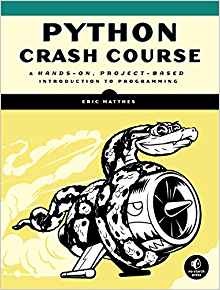
The book begins with a walk-through on basic Python elements and data structures. All topics are discussed in detail: from variables to code testing.
In the second half of the book, the reader will work on three major projects, creating useful and funny applications.The first project is an alien invasion game developed using the pygame package. You will design a ship, create an alien fleet and learn how to fight space invaders.
In the second project, you will learn how to work with matplotlilb: load data in various formats, visualize the results in the form of graphs and charts, interact with the web API and extract information from GitHub and HackerNews. The third project is the creation of a full-fledged web application on Django with an admin panel and user access control.
Head-First Python – Paul Barry
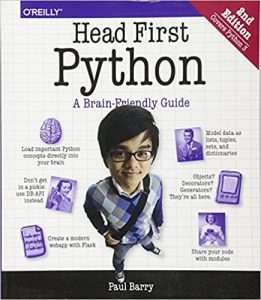
The unique approach of the Head First series – small self-contained sections rich in clear illustrations, examples and additional facts – makes this book unusually enjoyable and easy to read.
Studying the book, you will be creating a dynamic website in Python and CGI, and then an Android application, piece by piece. You will learn how to handle user input, deploy and scale your project.
Although this book is not as comprehensive as some others, it covers a wide range of tasks and explains them in an accessible language. If you are just starting to plunge into the world of programming and are not yet used to the dry language of most manuals, the Head First series is for you. Reading it, you definitely will not get bored.
Invent Your Own Computer Games with Python -Al Sweigart
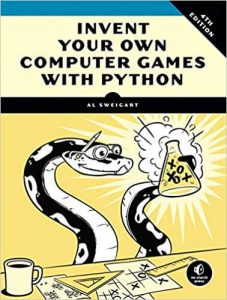
If you like games and dream of creating them, then you should definitely pay attention to this book. She will talk about the basics of programming in Python and help create some classic games: Guessing Game, Dragon’s Realm, Gallows, Reversi, Sonar and, of course, Tic Tac Toe.
In the process, in practice, you will learn how to work with various types of data and their transformations, lists, program flow, visibility areas, functions and conditional operators, get acquainted with cryptography and even artificial intelligence.
From the book you will learn how to animate graphics, detect collisions, use sounds, images and sprites. The wonderful PyGame library will help.
Think Python: How to Think Like a Computer Scientist – Allen B. Downey
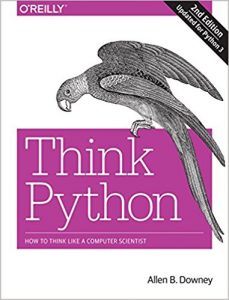
If making computer games is too frivolous for you, grab this book. Her approach is much more serious, because the author sets himself the task of teaching you to think as a programmer.
The book is written more dryly than the previous ones, and has a classic linear structure. The basics of programming in Python are presented in a simple and understandable language. Some advanced areas are covered quite superficially (the book is still for beginners), but there are many topics that are not covered in other manuals, for example, algorithm analysis, variability, and polymorphism.
The latest edition (2015) introduced more practical exercises, but overall it focuses on a deep understanding of the theory.
Effective Computation in Physics: Field Guide to Research with Python – Anthony Scopatz, Kathryn D. Huff
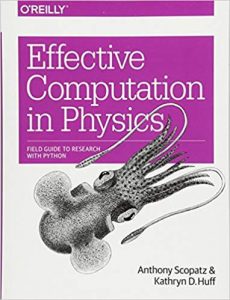
The name sounds pretty scary, but nonetheless, it is one of the best Python books for people with no experience in physics or computational research.
The book is divided into four blocks:
- Getting Started – all the information you need to get started.
- Getting it Done – working with data: main libraries , regular expressions, structures and information storage.
- Getting it Right – the most common errors and ways to avoid them, debugging, testing, as well as working with Git and Github.
- Getting it Out There – effective interaction with code consumers: markup languages, teamwork, software licenses.
Learning Python is an endless process. The language is so popular and is developing so fast that there is always something new in it . However, any innovations should be based on a solid foundation that our selection of the best Python books will help you create.